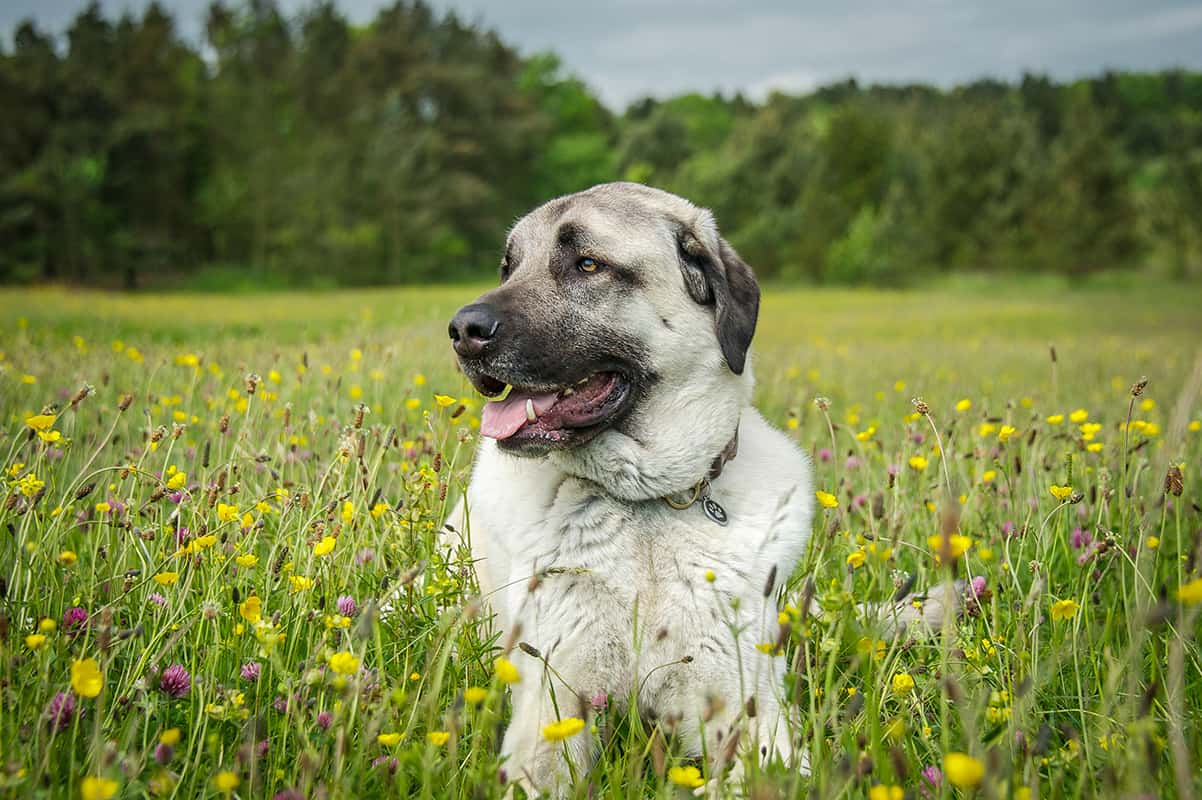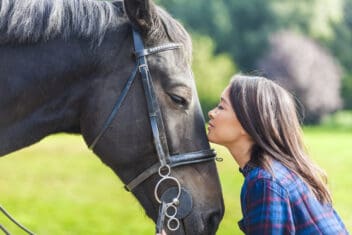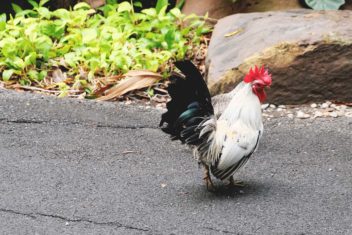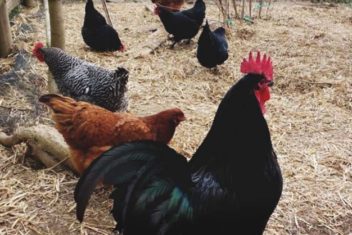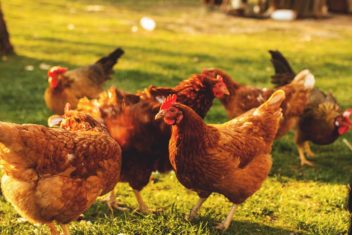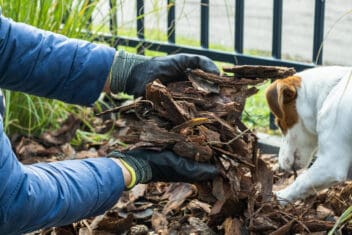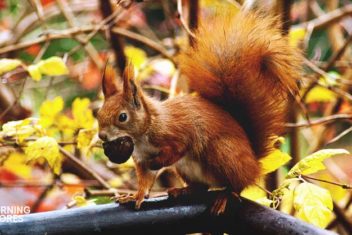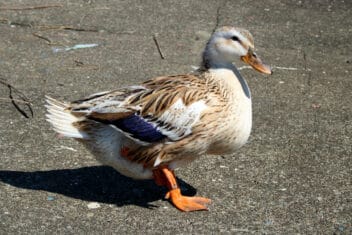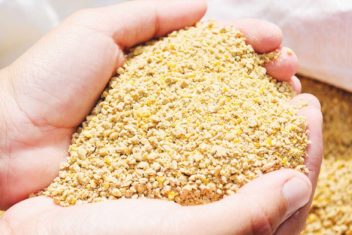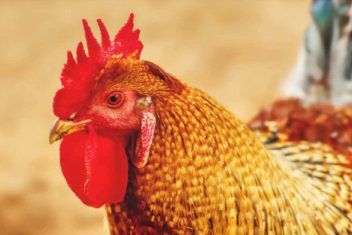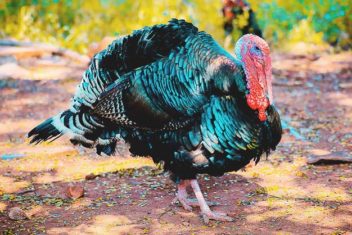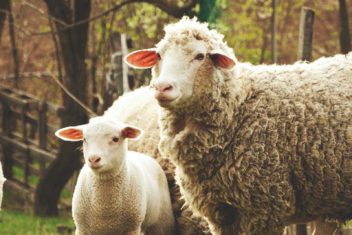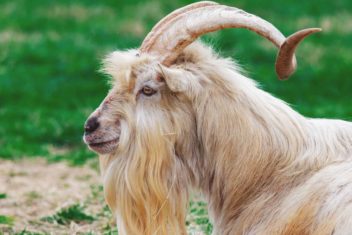Many of us with small farms often feel pulled in many directions. There are many jobs to do on a farm but not always enough help to do them all. Enter the Anatolian Shepherd.
Anatolian shepherds are a livestock guardian dog (LGD) who love to work protecting your farm.
Loyal and intelligent, they make a wonderful guardian for a homestead. Besides being known as a valued protector, they are calm, observant, and a friendly pet with their immediate family.
What Are Livestock Guardian Dogs?
There are many types of guardian animals that you can use to protect your homestead. Of those, dogs are probably the most well-known.
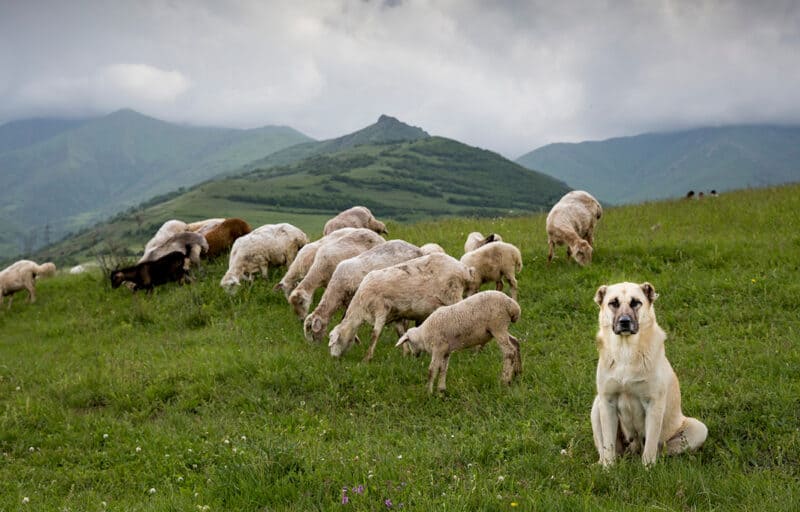
Dogs are often categorized by the jobs they do. Some breeds are called working dogs by the American Kennel Club, and many of these breeds make good livestock guardians.
The LGD is one of the various breeds of dogs that live outside and protects livestock from predators.
Some popular LGD’s are the Great Pyrenees, sheepdogs, and mastiffs (there are several varieties of each breed). They typically live in the fields or barns with farm animals.
To protect your homestead, these dogs patrol, mark their territory, bark, and warn you of any potential threats and possibly engage the “enemy” in a confrontation. These are all normal behaviors that they should be allowed.
My experience is that many LGD’s are not well suited as house dogs. We have had several different breeds, and it often makes them quite upset to be confined to the house and not able to do their job.
One time during a severe winter storm, I brought the dogs all in the house. They spent the time running back and forth between me and the door. They were not happy!
Anatolian History
The Anatolian Shepherd is a large rugged-looking dog that can weigh up to 150 pounds. They are approximately 26-28 inches tall at the shoulder.
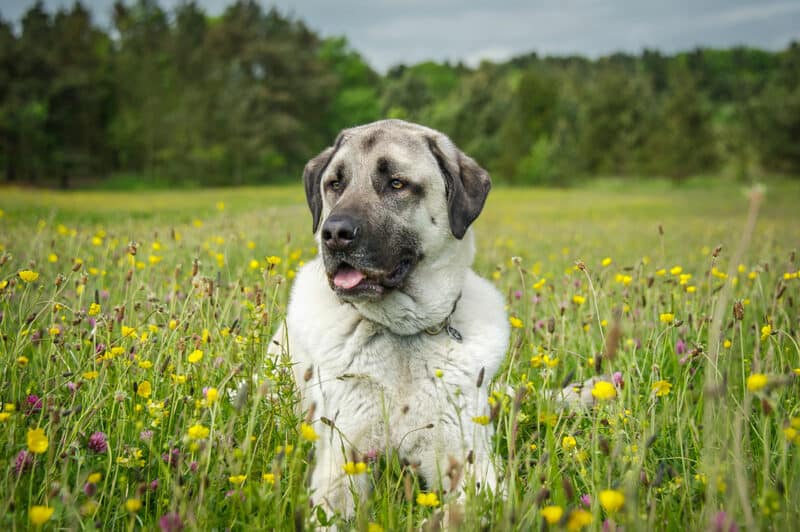
They are an old breed with a long history. Stemming from Asia Minor and Eastern Turkey, these dogs have been bred to protect flocks for many thousands of years. They’ve been written about in the bible and painted on cave walls.
Anatolians didn’t start coming to the US until the 1950s. They gained popularity in 1973 when the Endangered Species Act was established, and farmers wanted to protect their flocks without harming endangered animals.
The answer was for farmers to start using livestock guardian dogs.
They are also used in Namibia’s Cheetah Conservation program to protect both the cheetah and farmers’ livestock.
Caring for Anatolian Shepherds
Once you bring your Anatolian shepherd home, you have to make sure that they are well cared for. Here are the basics.
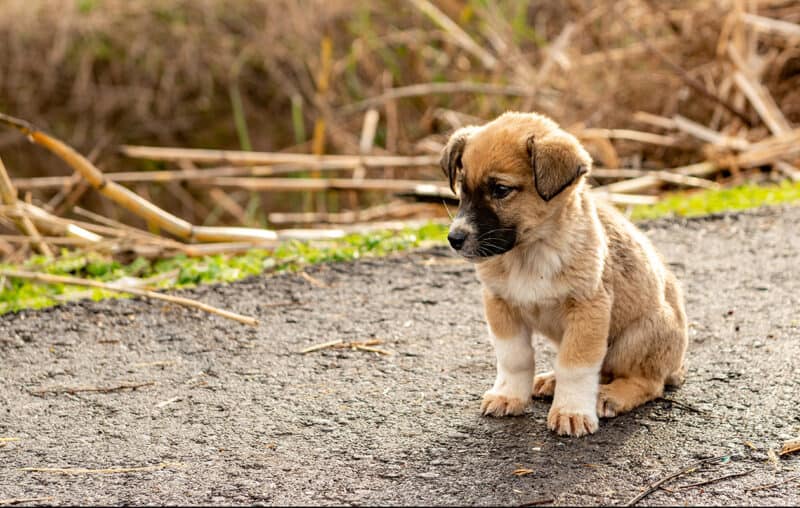
Nutrition
Good nutrition is vital for a dog that is on the go and always working. You can purchase high-end commercial dog food or make your own. If you make your own dog food you need to take care that it covers all the dog’s nutritional needs. Talk to your vet about a diet for your dog.
It’s important to feed a high-quality meal but not too much food. Overfeeding can cause health issues that shorten the lifespan of these dogs.
Establishing a good feeding routine is also important. Feed the puppy out at the barn and not in the house. However, give them a private eating location where other animals won’t help them eat.
With good nutrition, an Anatolian will live an average of 13-15 years.
Grooming
The Anatolian can come in a “short” or “rough” coat. Rough is a fancy word for long. Coming from such a cold area of the world the Anatolian coat is necessarily thick to keep them warm.
They actually have two layers of the coat. An undercoat and an outercoat. The coat will vary from one to four inches long.
The Anatolian loses some hair throughout the year. Typically, they shed their top hairs all year round and the undercoat twice a year. A good brushing will help the old hair fall out.
It’s important to give them a good brushing occasionally to prevent the hair from forming thick mats. The matted hair can pull at the skin causing irritation and possibly infection.
Anatolians have long nails and are good diggers. Check their nails every couple of weeks to make sure they aren’t too long. Toenails that are too long can cause problems with movement putting a strain on the muscles. They can also get snagged on something out in the field.
It’s important to start working with your dog’s feet at an early age. That way, they get used to having their nails trimmed.
Health
Anatolians are strong, healthy breeds and lack many of the issues of more popular breeds – and their breeders are working hard to keep it that way.
They’re not prone to hip dysplasia or bloat like some other larger breeds.
Anatolians have a sensitivity to anesthesia, so talk to your veterinarian about the breed to make sure they’re aware.
Behavior and Training
Anatolians are not a dog for a first-time owner. They need firm leadership from their human and lots of supervised experiences with livestock.
They’re also a family-centric dog. That means they will accept their humans and other animals as their family. However, they may feel the need to protect you from other humans and animals.
Like many large breeds, the Anatolian is quite independent and can be stubborn at times. They’re naturally wary of anyone not in their family.
Getting A Puppy
Good socialization is necessary and should start when they’re pups. Make sure your puppy has many opportunities to learn about different situations.
Bonding pens work well when introducing a new puppy to the herd. Use a small holding paddock and place some of your more dog-friendly livestock in the pen. If you have baby animals, that works great too.
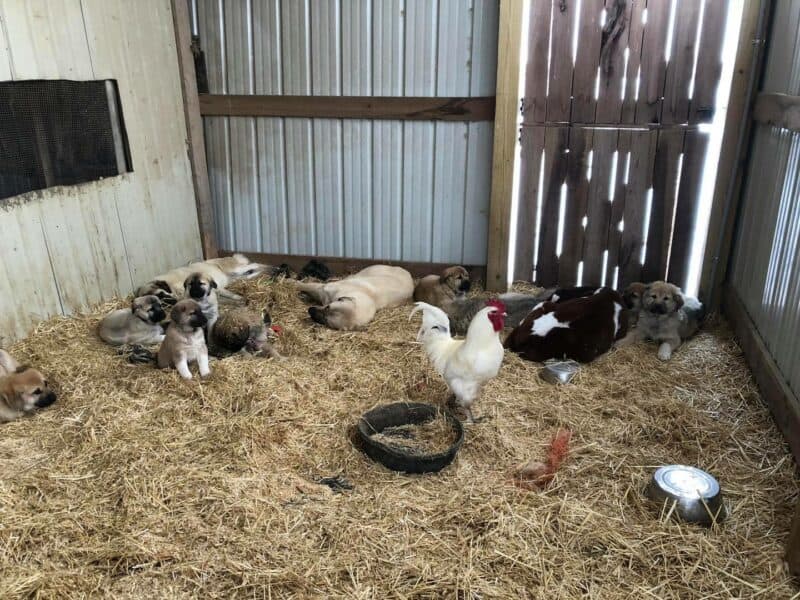
Introducing a few animals at a time allow your new puppy time to bond. Keep an eye on the new group to make sure all is going according to plan. If the puppy or the livestock seem upset or nervous, give them a break.
You must take the time to give your puppy obedience training. It’s much better to start young when they just want to please you than to wait until you have an adult dog with bad habits.
When training any large dog, you must establish yourself as the alpha. That means that you are the top dog, the one in charge. Anatolians are a pack animal that appreciates a hierarchy in the home.
An Anatolian shepherd will respond much better to positive reinforcement than to coercion or punishment. Praise your puppy frequently when he does the right thing. Go into the bonding pen and praise the puppy for positive interactions with the livestock.
Spend some one-on-one time with the new pup every day. Get him or her used to wearing a collar and walking on a leash. Take your young dog with you as you go about your farm chores.
Give them a ride in the farm truck. All of these things introduce the puppy to their job and help them bond with you as well.
Out of Site Out of Mind
Sometimes, dogs out in the fields don’t get as much human interaction, but you need to make sure your dogs are doing well. In addition to feeding them every day, you need to make time to check on and spend time with them.
They may be working animals, but they are still social creatures.
Go out into the field or call the dogs into the barn area. Make sure they don’t have any cuts or scratches and their feet are in good shape.
Talk to them and tell them they are doing a good job. This will help your dog feel motivated in their job (just like people).
Buying an Anatolian
There are several things to look for when buying an Anatolian Shepherd. You can find breeders on the AKC website or by looking at the ads on your favorite farm journal.
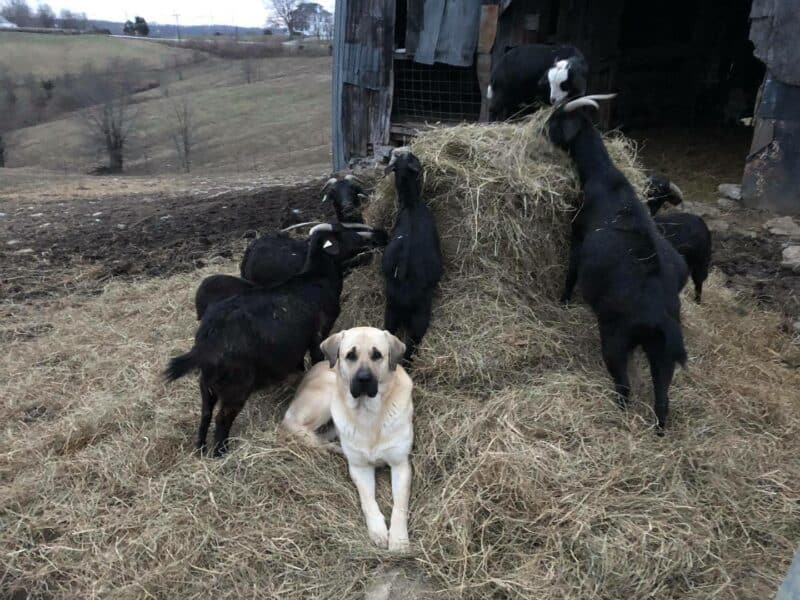
What To Look For In A Breeder
- Raises puppies with livestock so that they begin to learn by modeling parents and bonding with animals
- Have animals screened with OFA (Canine Health Information Center) for hip and joint issues
- Works to socialize puppies and gives them a variety of experiences with meeting different people and animals
- Willing to communicate with you to make sure the puppy is a good fit for your environment
There is also a National Anatolian Shepherd Rescue Network for those of you that want to give a good dog a new lease on life.
An Anatolian Shepherd Can Save Your Flock
Your livestock are an important investment. As homesteaders, we’re responsible for their safety and, of course, want them to thrive.
Getting an Anatolian Shepherd can be a great option if you are looking for a quality livestock guard dog that can keep your animals safe from predators.
